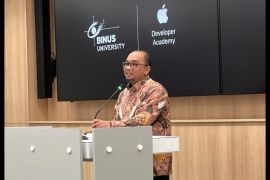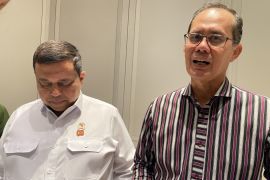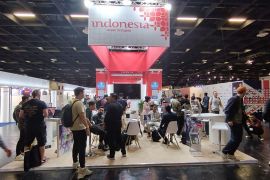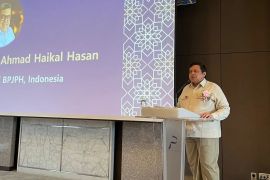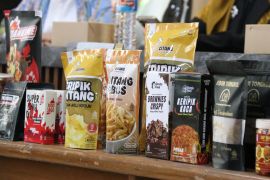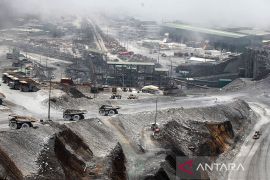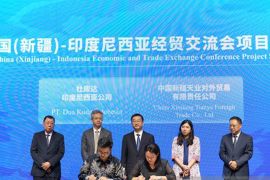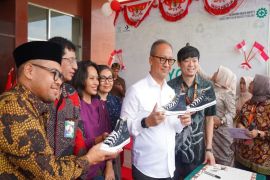We want all industries to be able to obtain this facility because it really helps to increase competitiveness and industrial utilizationJakarta (ANTARA) - Industry Minister Agus Gumiwang Kartasasmita disclosed his administration’s policies to boost productivity and strengthen national industry resilience amid the current community activities restriction (PPKM).
One of the policies is to grant an industrial operation and mobility permit (IOMKI), Kartasasmita noted.
"We have implemented IOMKI from 2020 until today. This policy provides certainty for the industry to be able to continue its activities by prioritizing health protocols," he said in his press release obtained here on Friday.
The minister also set a number on the industry's gas price to sit at US$6/MMbtu to increase the industrial utilization, maintain the workforce, and be able to increase investment up to Rp192 trillion.
Currently, there are seven sectors of industry that can savor the policies. The Ministry of Industry had spoken with The Energy and Mineral Resources (ESDM) to expanding the policies to another 13 sectors of the industry.
"We want all industries to be able to obtain this facility because it really helps to increase competitiveness and industrial utilization," Kartasasmita remarked.
To increase the competitiveness of domestic products, the ministry is also pushing for a policy of improving the strengthening of domestic products.
Currently, there are 13,456 industrial products with a local content requirement (TKDN) of more than 25 percent with valid certificates.
"The number will continue to grow since we have allocated a budget this year to finance the TKDN certification process," Kartasasmita pointed out.
The policy was in line with the application of the Indonesian National Standards (SNI) to encourage the strengthening of the domestic industry.
The following policy is the import substitution policy of 35 percent in 2022 which aims to reduce imports in industries with large import values. The policy works simultaneously with the increasing production utilization of the entire manufacturing sector.
Import substitution also targets an increase in industrial investment, both new investment and expansion, for products of raw and auxiliary materials, as well as capital goods.
About Indonesia's Purchasing Managers Index (PMI), which stood on the expansive level for the last eight months, the minister said this shows that the industrial sector remains optimistic. In June 2021, Indonesia's PMI manufacture was still at 53.5.
Indonesia's PMI number had dropped to 40.1 in July during the emergency PPKM.
The Ministry of Industry also collaborated with the Ministry of Health to conduct vaccinations in the industrial sector starting at the end of July.
Through the program, around 5,000 industrial workers had been vaccinated. This program is targeted to reach industrial workers in Java and Bali until October 2021.
One of the factors behind the decreasing number of Indonesia's PMI manufacture in Indonesia is related to the oxygen raw materials procurement to help COVID-19 patients, Kartasasmita explained.
"Before the outbreak of the Delta variant of COVID-19, the oxygen ratio for the industry and medical was 70:30. Currently, it is 90 percent for medical and 10 percent for industry," he explained.
The gap between oxygen procurement for medical and industrial purposes resulted in the lack of oxygen supply for industries.
Meanwhile, the economic growth of government projects is slated to reach 3 to 4 percent in the third quarter and 4 to 5 percent in the fourth quarter of 2021.
"Of course, this target can be achieved if vaccinations for the industrial sector can run well," Kartasasmita said in his closing statement.
Related news: Manufacture industry giving its best amid COVID-19: Minister
Related news: Indonesia's automotive industry facing challenges in online sales
Related news: Industrial sector encouraged to contribute in COVID-19 handling
Translator: Risbiani F, Resinta S
Editor: Sri Haryati
Copyright © ANTARA 2021

